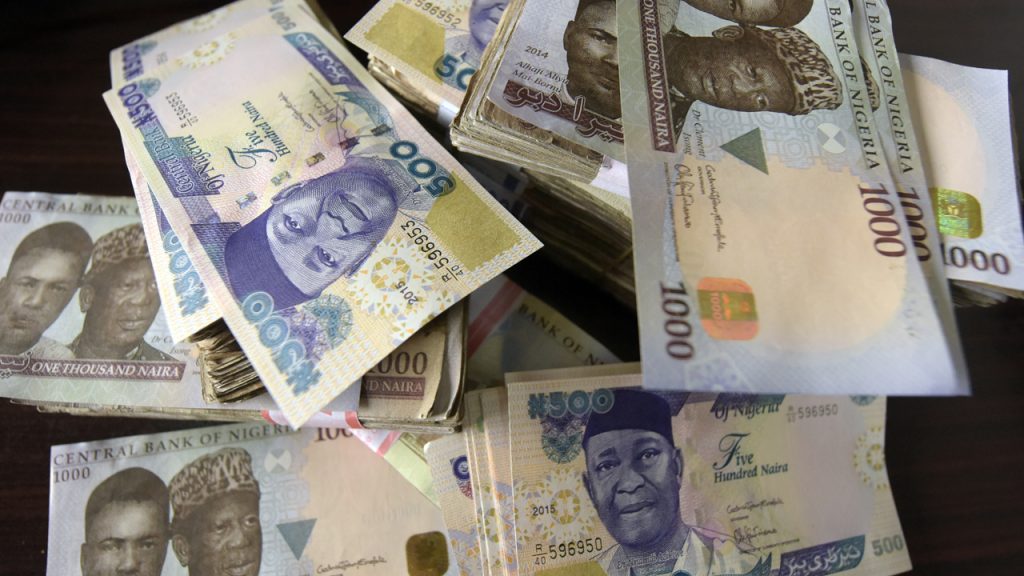Nigeria’s Naira Experiences Minor Fluctuations Against the US Dollar in a Week of Mixed Trading:
The Nigerian Naira, the country’s official currency, concluded the trading week with a marginal gain against the US dollar, providing a glimmer of hope amidst a period of relative instability. On Friday, the Naira closed at N1,534.72 per dollar at the official Central Bank of Nigeria (CBN) market, representing a slight appreciation of 4.52 kobo or 0.05% compared to Thursday’s closing rate of N1,534.79. This positive close offered a modest recovery from earlier losses incurred during the week, suggesting a tentative stabilization of the Naira’s value. However, the overall trend remained one of minimal fluctuation, underscoring the ongoing challenges facing the Nigerian currency in the foreign exchange market.
The week’s trading activity witnessed a series of minor gains and losses for the Naira. On Monday, the currency experienced a slight depreciation of 20 kobo against the dollar, setting the stage for a week of mixed performance. Tuesday saw the Naira trading at N1,535.24 per dollar, followed by a further marginal decline to N1,535.62 on Wednesday. These fluctuations reflect the sensitivity of the Naira to various market forces, including global economic conditions, domestic policies, and investor sentiment. The relatively small magnitude of these changes indicates a degree of resilience in the Naira, although the underlying vulnerabilities persist.
The Naira’s recent performance highlights the complex interplay of factors influencing its exchange rate. Nigeria’s economy, heavily reliant on oil exports, remains susceptible to fluctuations in global oil prices. Lower oil revenues can exert downward pressure on the Naira, as the country’s foreign exchange reserves dwindle. Furthermore, domestic economic challenges, such as inflation and unemployment, contribute to the Naira’s vulnerability. The CBN’s efforts to manage the exchange rate through interventions and policy adjustments have met with mixed success, underscoring the difficulty of navigating a volatile global economic landscape.
The significance of the Naira’s exchange rate extends beyond mere financial markets. A weaker Naira can lead to higher import costs, potentially fueling inflation and impacting the affordability of essential goods and services for Nigerian consumers. This can have a ripple effect throughout the economy, affecting businesses, households, and overall economic growth. Conversely, a stronger Naira can improve the purchasing power of Nigerian consumers and businesses, potentially boosting economic activity. Therefore, maintaining a stable and competitive exchange rate is crucial for Nigeria’s economic well-being.
Looking ahead, the Naira’s trajectory will depend on a multitude of factors, both domestic and international. The performance of the global oil market will continue to play a significant role, as will the CBN’s monetary policies and the government’s fiscal measures. Attracting foreign investment, diversifying the economy, and strengthening domestic production are essential for enhancing the Naira’s resilience in the long term. These structural reforms can reduce Nigeria’s dependence on oil exports and create a more robust and sustainable economic foundation.
In conclusion, the Naira’s modest gain against the US dollar at the end of the trading week provided a welcome respite from earlier losses. However, the overall picture remains one of cautious optimism, as the Naira continues to navigate a challenging economic environment. The interplay of global market dynamics, domestic policies, and structural reforms will ultimately determine the Naira’s future performance. Maintaining a stable and competitive exchange rate remains crucial for Nigeria’s economic prosperity and the well-being of its citizens. The ongoing efforts to diversify the economy and strengthen its resilience will be key to mitigating the impact of external shocks and ensuring a more sustainable and prosperous future for Nigeria.


